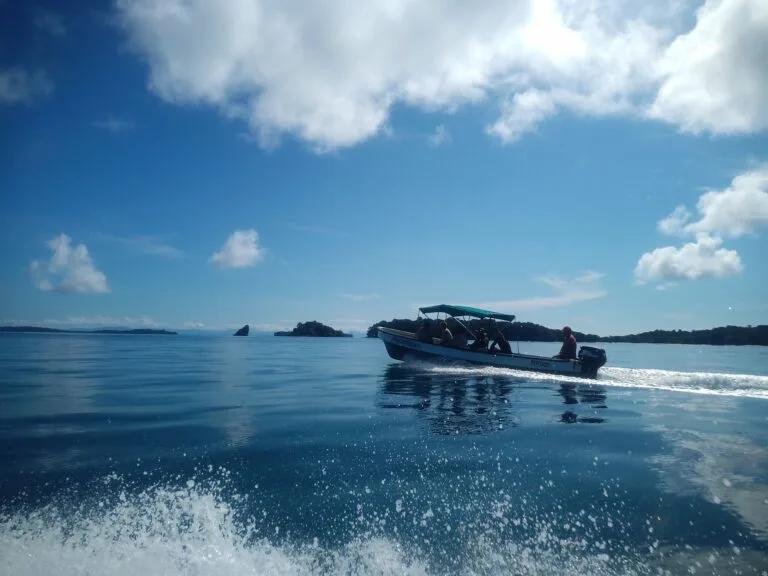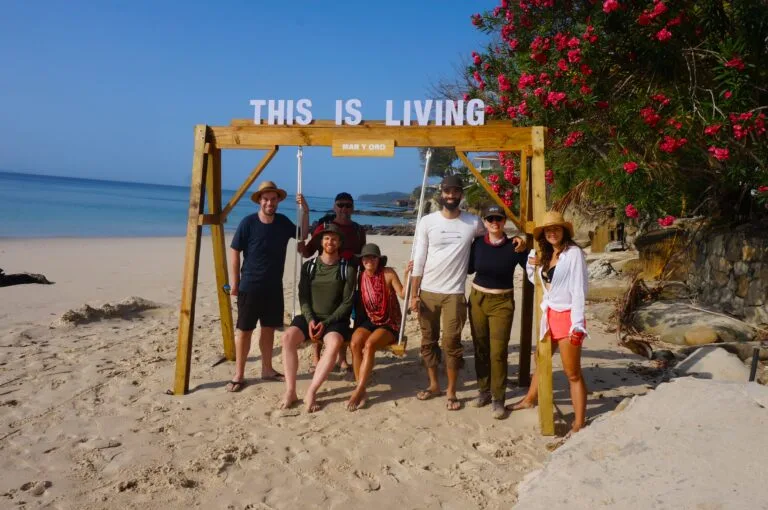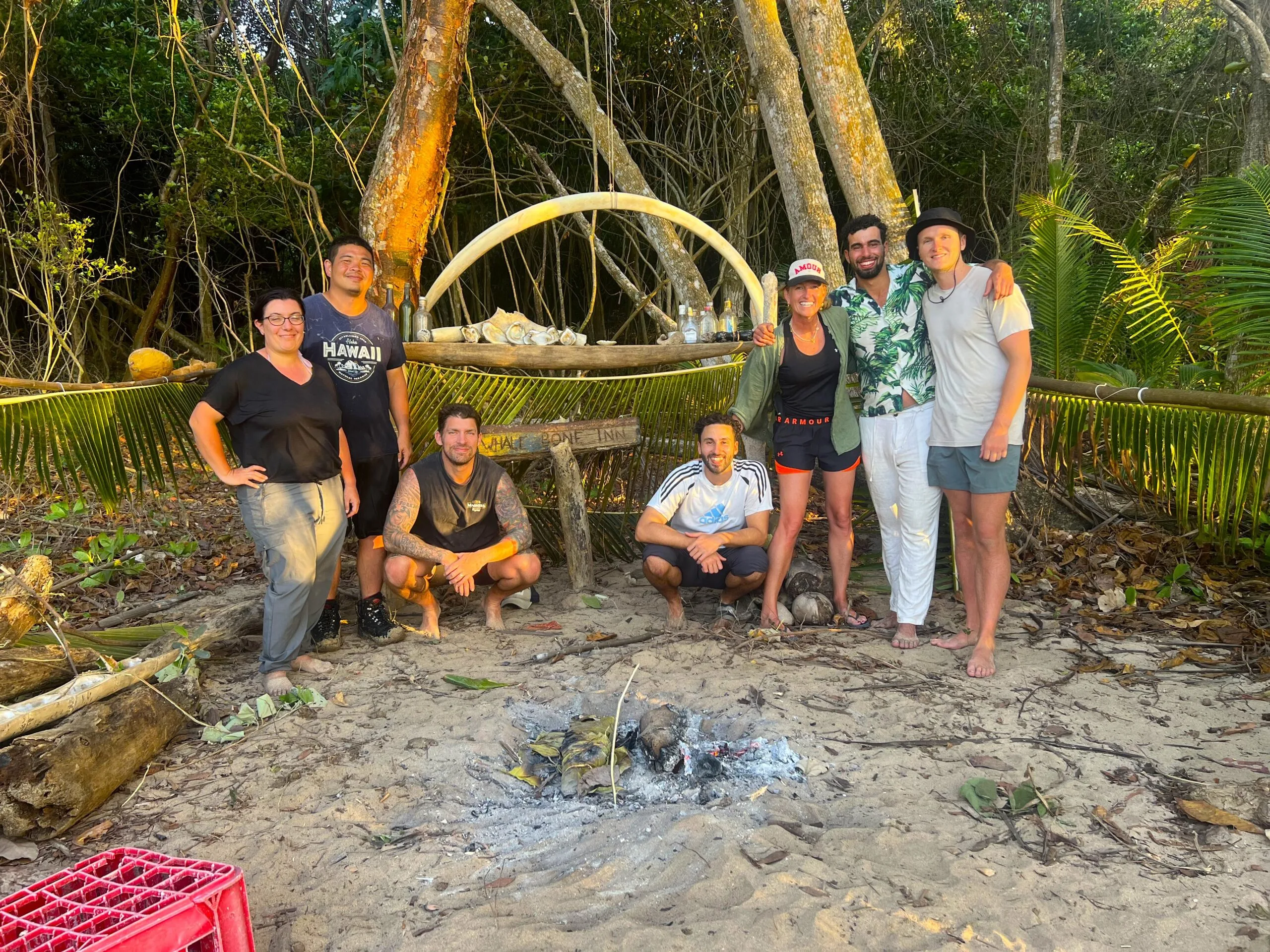
The Benefits of Corporate Retreats
Why a Desert Island Survival Experience Boosts Team Performance
It’s natural that corporate retreats should evolve. Every other aspect of business is changing so fast, why shouldn’t the way that we reward the teams that are making things happen? What people need in this environment changes too. A corporate retreat that provides participants with some form of disconnect, and still provides skills that will be used in perpetuity is a tough one to find. These twin priorities can be strange bedfellows, and striking a balance between them isn’t the easiest thing to do. Of course, you want your team to view their time away as beneficial to them, both in regard to what they will actually be doing and how that will positively affect their goals; individually, and as a team. With that in mind, how about stranding them on a desert island?

At Desert Island Survival we do things a little differently from any other corporate retreat. Our vision for what a retreat should be runs deep through how we create our experiences. The best sort of learning happens in an environment where you don’t even realise it’s happening. Your team will come away with a life experience that will bond them forever, be talked about endlessly, and motivate forward movement. There’s nothing like it. Ditch the soulless norm. Embrace the extraordinary.
In today’s fast-paced business world, corporate retreats and company retreats have become powerful ways for companies to enhance team performance, improve company culture, and motivate employees. A corporate retreat goes beyond just a break from the usual office setting; it provides a refreshing environment where team members can focus on team building, leadership, and personal growth.
One of the most exciting options for a corporate retreat? A desert island survival experience, where team dynamics flourish, and the whole team faces challenges together that bring lasting benefits to the workplace. Let’s explore why corporate retreats focused on survival and team resilience are redefining what it means to build strong, engaged teams.
Introduction to Corporate Retreats
Corporate retreats are a valuable tool for companies to bring their teams together, foster collaboration, and drive business growth. In this section, we will explore the definition and purpose of a corporate retreat, its benefits for team performance and company culture, and provide guidance on setting clear goals and objectives for the retreat.
Definition and Purpose of a Corporate Retreat
A corporate retreat is a planned event where a company’s team members come together to bond, learn, and grow as a team. The purpose of a corporate retreat is to provide a unique opportunity for team members to step away from their daily routines and focus on building relationships, sharing ideas, and aligning with the company’s vision and goals.
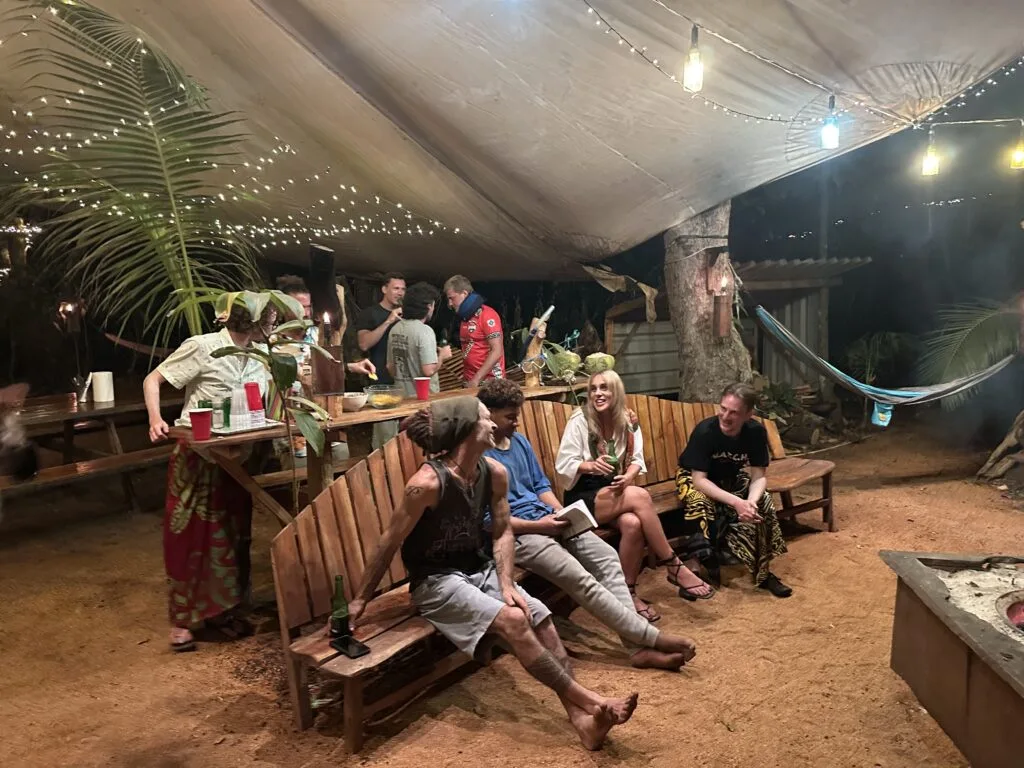
Benefits of a Corporate Retreat for Team Performance and Company Culture
Corporate retreats offer numerous benefits for team performance and company culture. Some of the key benefits include:
- Facilitating Team Bonding and Collaboration: Retreats provide a relaxed environment where team members can connect on a personal level, strengthening their professional relationships.
- Boosting Employee Morale and Engagement: Stepping away from the daily grind and engaging in fun, meaningful activities can significantly boost employee morale and motivation.
- Improving Communication and Problem-Solving Skills: Retreats often involve team-building activities that enhance communication and collaborative problem-solving.
- Enhancing Creativity and Innovation: A change of scenery and new experiences can spark fresh ideas and innovative thinking.
- Providing a Platform for Leadership Development and Training: Retreats offer opportunities for leadership exercises and training, helping to identify and develop future leaders.
- Fostering a Sense of Community and Company Culture: Shared experiences during retreats help build a strong sense of community and reinforce the company’s values and culture.
Why Choose a Survival-Themed Corporate Retreat
A corporate retreat offers unique ways to step away from the day-to-day, but a survival retreat takes this to a whole new level. Survival-themed retreats facilitate team bonding by removing employees from their typical work environments and engaging them in activities that promote teamwork and problem-solving. Instead of team building activities that feel predictable, a survival-themed company retreat involves real challenges that require collaboration, problem-solving, and mutual trust among team members. The result? A team that returns stronger, more bonded, and more prepared to work as a cohesive unit.
When team members participate in a survival retreat, they face challenges that foster personal growth, strengthen resilience, and build deeper relationships. From constructing shelters to finding food, they learn how to foster creativity and make quick decisions—skills that translate directly back into the office.
And when a team is removed from the usual corporate event environment, it gives remote teams a rare opportunity to come together and bond in a way that can be difficult to achieve through video meetings or virtual team building exercises.
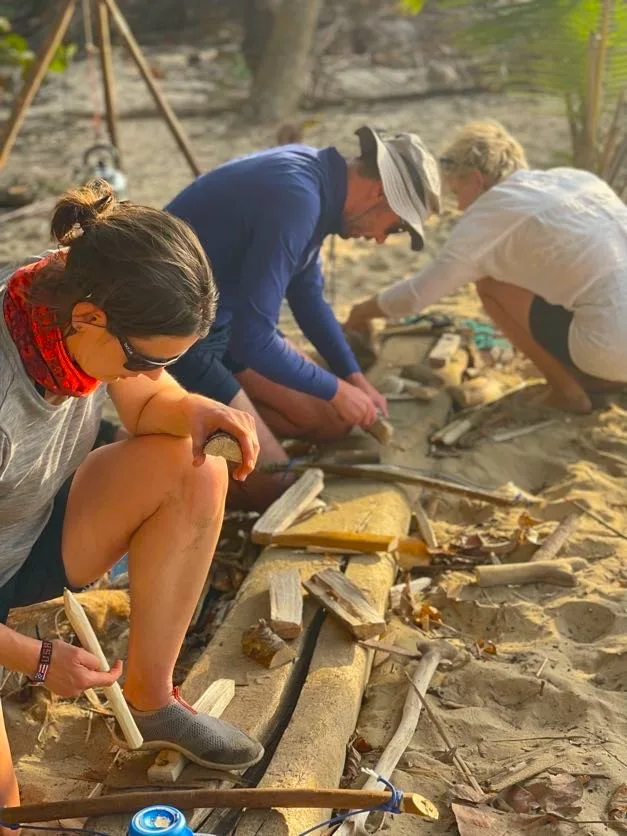
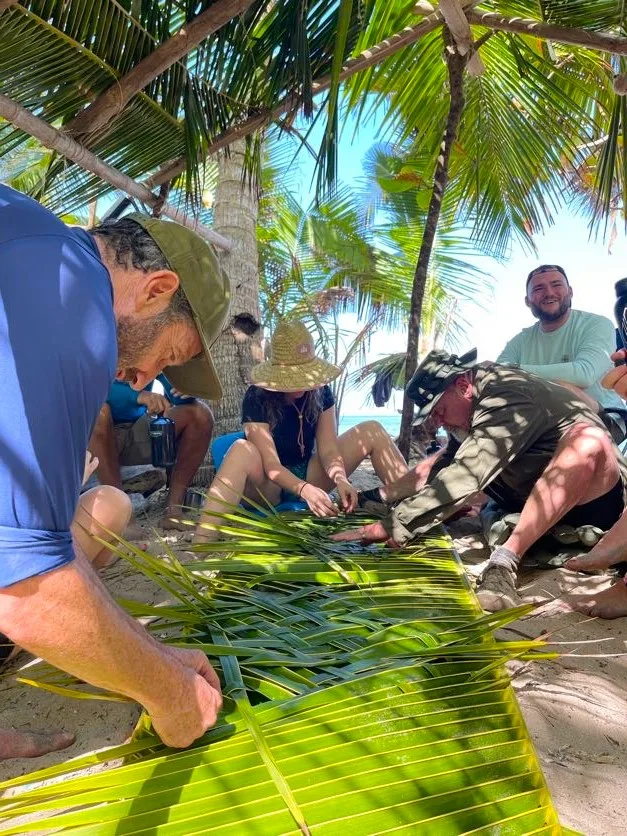
Setting Clear Goals and Objectives for the Retreat
To ensure a successful corporate retreat, it’s essential to set clear goals and objectives. This includes defining the purpose of the retreat, identifying the target audience, and outlining the desired outcomes. Some questions to consider when setting goals and objectives include:
- What are the company’s goals and objectives for the retreat?
- What are the team’s needs and expectations?
- What are the desired outcomes for the retreat?
- How will the retreat align with the company’s overall strategy and vision?
How Desert Island Survival Builds Team Cohesion
Our Desert Island Survival experiences are designed to focus on team bonding and performance improvement. Here’s how this immersive experience helps achieve core goals of leadership, collaboration, and problem-solving in a natural, challenging setting.
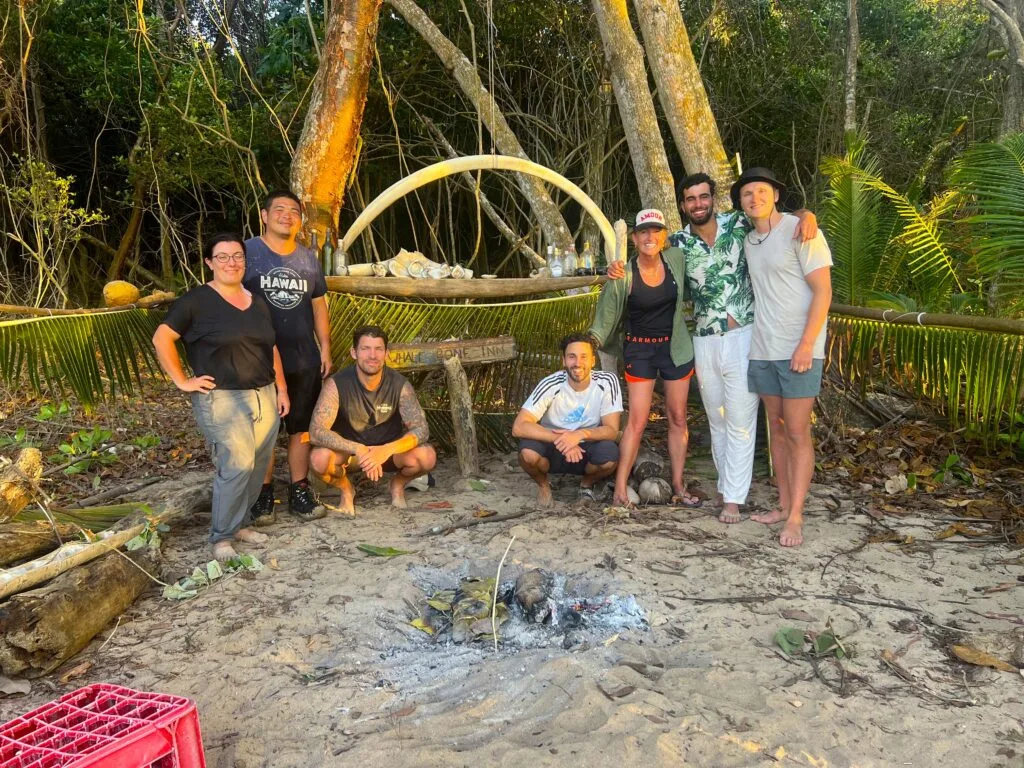
1. Developing Leadership and Building Trust
A desert island survival retreat encourages team leads and future leaders to emerge naturally. Instead of structured leadership exercises, this environment allows leadership to develop through necessity and adaptability, inspiring team members to trust each other’s instincts, communicate clearly, and rely on each other. Real-life challenges highlight leadership potential and build trust, essential components of effective team dynamics. Professional facilitators can also lead productive workshops to manage conflicts, uncover issues, and guide teams toward solutions with an unbiased perspective, further enhancing leadership development.
2. Strengthening Problem-Solving Skills
In survival situations, there’s no pre-set manual, and that’s where creative problem-solving skills come into play. Team members are encouraged to think critically, make fast decisions, and work together to achieve common goals. Problem-solving in a wilderness setting teaches the value of collaboration and quick thinking—skills that elevate performance back in the office.
3. Boosting Employee Morale and Encouraging Cohesion
When team members complete a retreat like this, they walk away with a sense of achievement that’s unparalleled. Successfully surviving on an island without the comforts of the daily routine builds resilience and raises employee morale. The shared experiences foster an appreciation for teamwork and make employees feel truly valued by the company, improving morale and loyalty.
4. Encouraging New Ideas and Innovation
In the natural world, without usual resources, teams must come up with innovative ways to tackle survival tasks. This out-of-the-box thinking develops a mentality of resourcefulness, which can boost employee morale and lead to new ideas in the workplace. When teams return, they bring a mindset of adaptability that encourages creativity across projects.
Why Corporate Retreats in Nature are So Effective
Traditional corporate retreats can feel forced, with carefully planned team building games or overly structured activities. But team building activities in the wild, like shelter-building and foraging, have an organic flow. Here’s why nature-based team building exercises are becoming the go-to choice for companies looking to truly connect their team members.
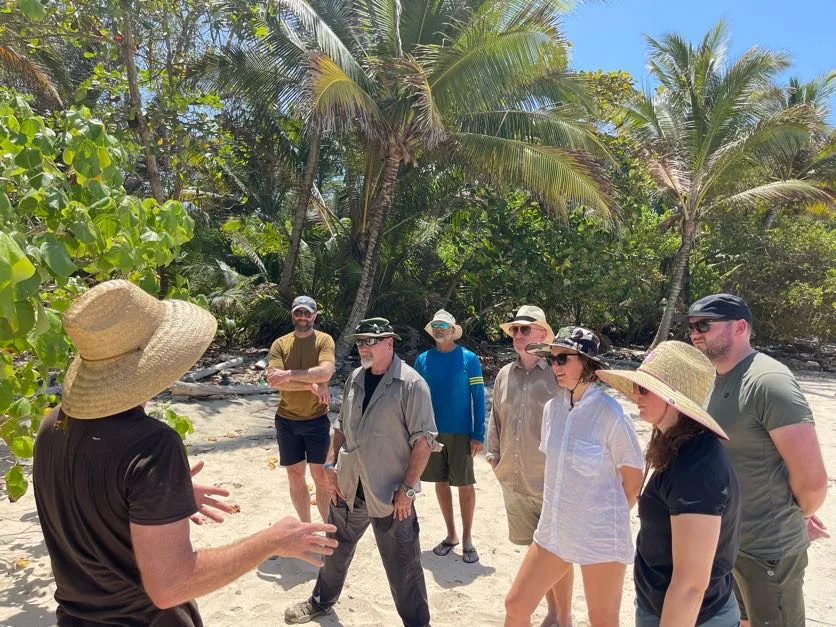
1. Enhancing Team Morale and Employee Motivation
The physical challenges of survival demand mutual support. Whether it’s building a fire or catching dinner, every team member relies on others, which strengthens team morale and motivation. When team members see the value of each individual’s contribution, it reinforces the shared mission of the company and leads to a more supportive, engaged work environment.
2. Bonding in a Unique Environment
In an office or even on a conventional company retreat, building genuine bonds can be difficult. In contrast, a survival experience is full of unique challenges that make for deep, memorable connections. The shared memories of overcoming obstacles form the foundation for better collaboration and more cohesive teamwork back in the office.
3. Bringing Your Company’s Mission to Life
If your company’s mission emphasizes resilience, teamwork, and innovation, a survival retreat serves as a true embodiment of those values. Seeing how these values come to life during a survival corporate retreat reinforces their importance among team members and keeps them top of mind back at the office.
Real-World Case Study: How Survival Retreats Boosted Team Performance
Case Study 1: A Finance Team Builds Trust and Strategic Thinking
A financial services firm sought to improve team dynamics and boost decision-making capabilities among team members. During a week-long desert island survival retreat, they encountered real-world challenges like sourcing food and rationing water—mirroring the need for strategic resource allocation at work. They returned with a newfound sense of unity and an improved capacity for strategic problem-solving.
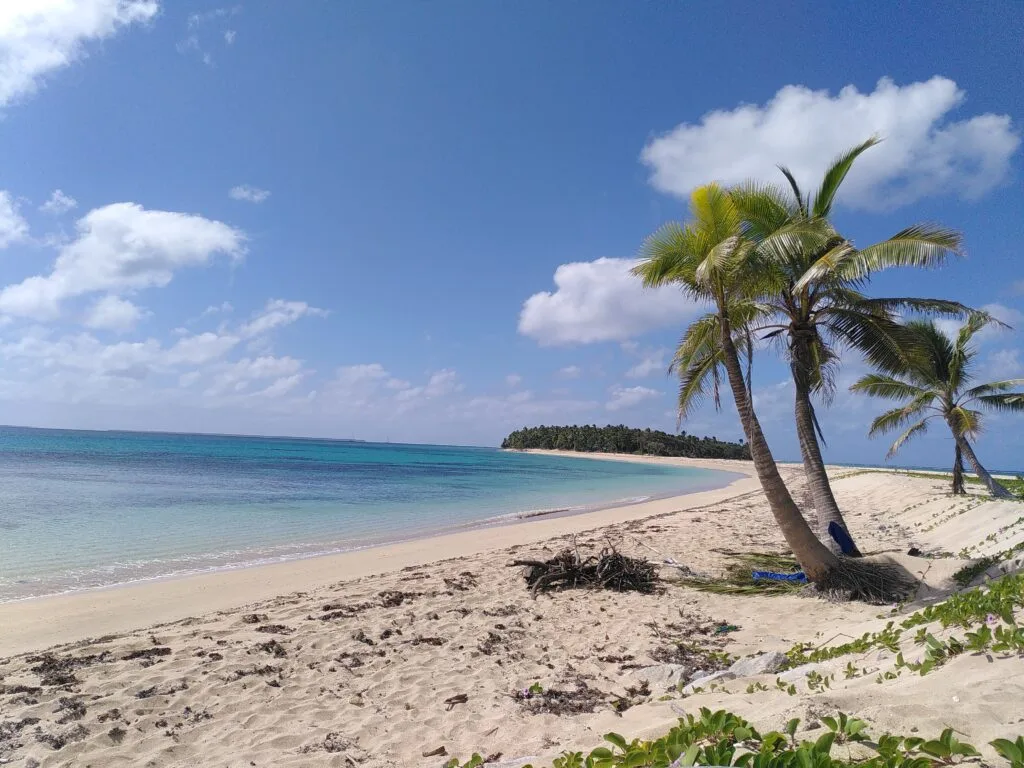
Case Study 2: A Marketing Team Strengthens Relationships and Creativity
A marketing agency with remote employees brought its team together for a company retreat on a desert island. The experience encouraged team bonding, which helped eliminate the usual disconnect remote teams feel. In this environment, they collaborated on survival tasks, which led to deeper relationships and fostered creativity, helping them tackle client projects with renewed perspective and cohesion.
Case Study 3: A Tech Startup Reignites Team Spirit and Company Culture
A tech startup that experienced rapid growth wanted a way to strengthen its company culture. The survival retreat helped team members identify each other’s strengths, improve communication, and develop leadership. They returned with enhanced morale and motivation to tackle the year’s goals, embodying the company values more closely.
Planning Your Next Company Retreat: Why a Survival Experience is Ideal
Organizing a company retreat can be daunting, especially when you want it to stand out from typical corporate events. Effective event planning is crucial in organizing a successful retreat, ensuring every detail aligns with your goals. Here’s why a survival retreat is an ideal choice for companies looking to go beyond traditional team building exercises and cultivate a high-performing team.
- Unique Venue: The wilderness offers an environment unlike any conference room or retreat centre. A natural island becomes the perfect location for fostering creativity and breaking free from the routine.
- Comprehensive Planning Process: We take care of the entire planning process, from team-building exercises to survival training, so your company can focus on reaping the benefits.
- Focused Goals: A survival retreat can be customized to meet specific objectives, whether that’s leadership development, boosting employee morale, or fostering creativity.
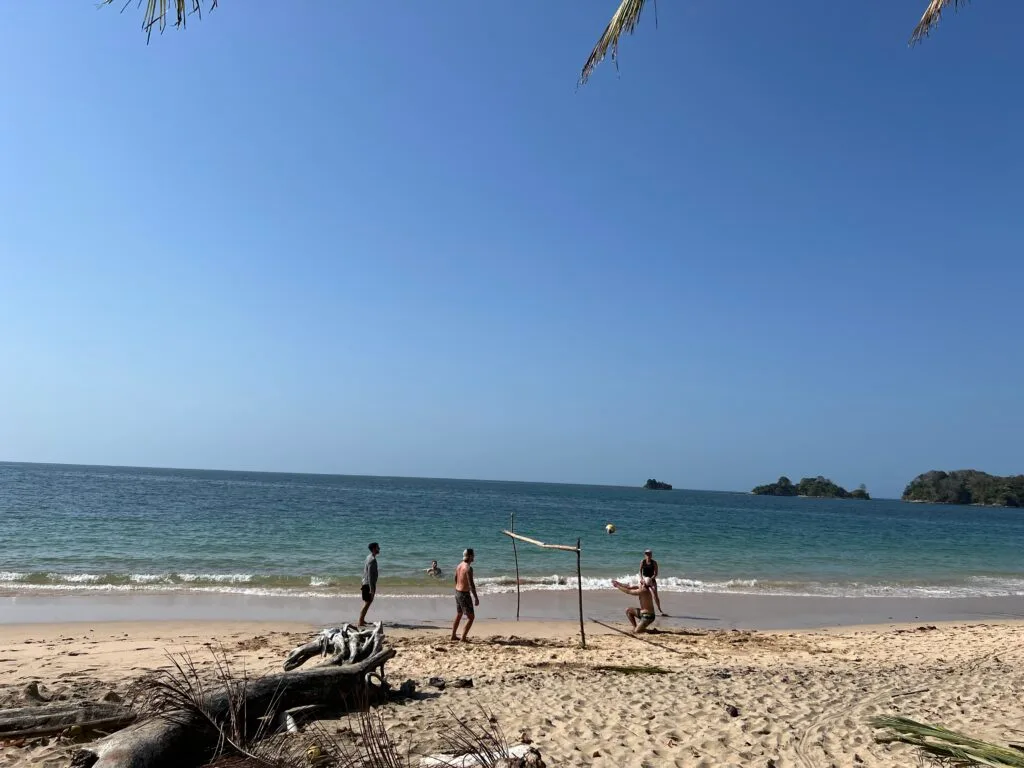
Improving Employee Well-being and Work-life Balance
Corporate retreats can also play a crucial role in improving employee well-being and work-life balance. By providing a break from the daily routine and offering opportunities for relaxation and recreation, corporate retreats can help reduce stress and burnout. Some ways to incorporate well-being and work-life balance into the retreat include:
- Offering Wellness Activities: Incorporate activities such as yoga, meditation, or nature walks to promote relaxation and mental well-being.
- Providing Opportunities for Team Members to Share Their Interests and Hobbies: Encourage team members to engage in activities they enjoy, fostering a sense of personal fulfilment.
- Encouraging Work-life Balance: Promote flexible scheduling and remote work options to help team members manage their work and personal lives effectively.
- Fostering a Sense of Community and Connection: Create opportunities for team members to connect on a personal level, building a supportive and cohesive team environment.
By thoughtfully planning and executing a corporate retreat, companies can create a transformative experience that enhances team performance, boosts employee morale, and strengthens company culture.
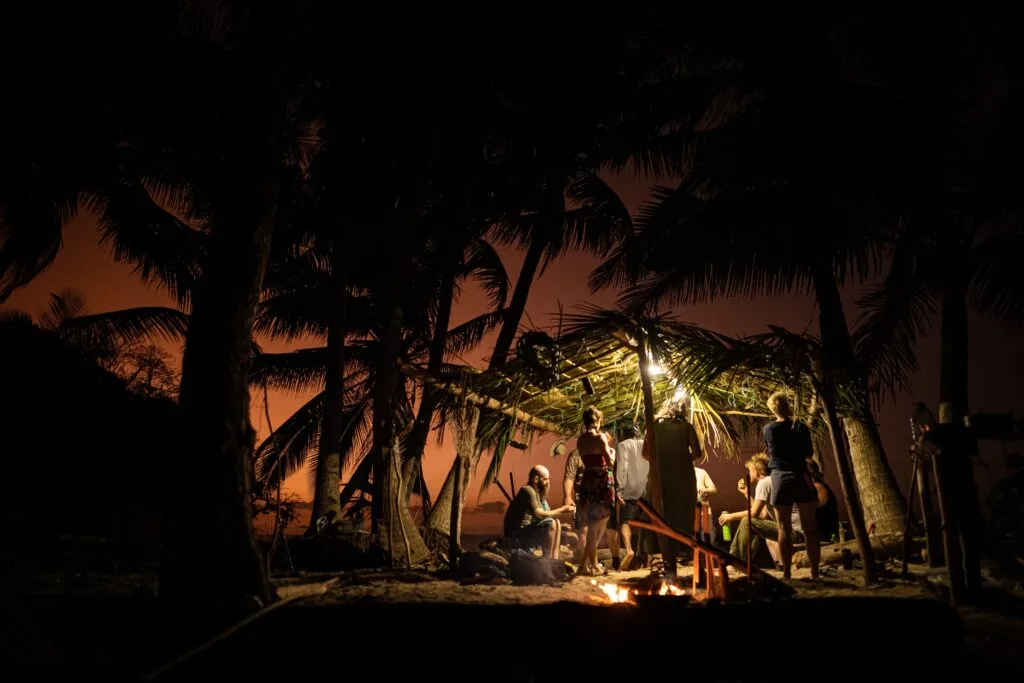
Benefits of Survival Retreats for Employee Development
- Facilitating Team Bonding and Building Deeper Relationships
- The intense experience of survival solidifies team relationships, creating connections that go far deeper than casual office interactions. Shared challenges build trust and strengthen relationships, setting the stage for collaboration and innovation.
- Improving Communication and Problem-Solving Skills
- Whether it’s gathering supplies, building a shelter, or cooking meals together, survival tasks require clear communication and cooperation. Every challenge becomes an exercise in problem-solving, refining the team’s ability to work together effectively.
- Reinforcing Company Values in a Unique Way
- If your company values teamwork, resilience, and adaptability, a survival experience is a way to embody these values fully. Team members will see how each value plays a role in survival, bringing a deeper appreciation for the company’s mission when they return to work.
- Returning to Work with Renewed Purpose and Motivation
- By stepping out of the regular office setting, employees return with a stronger commitment to the company’s mission, an appreciation for their team members, and a sense of achievement. This translates into enhanced employee morale and motivation in the office.
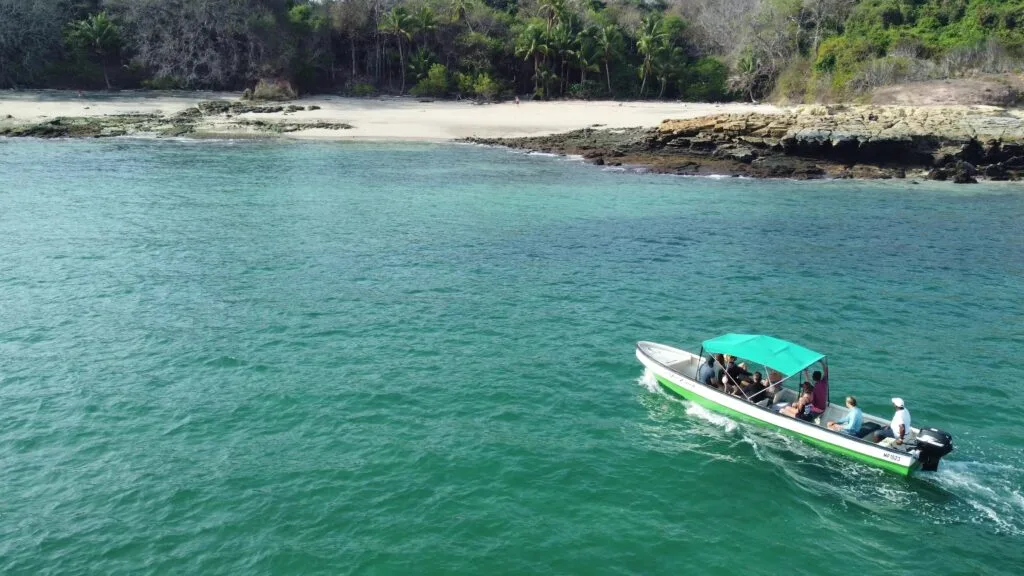
Planning Your Next Corporate Retreat with Desert Island Survival
A corporate retreat isn’t just an escape from the daily routine—it’s an opportunity to build a resilient, motivated, and cohesive team. Desert Island Survival offers an immersive experience that aligns with real company goals, from leadership development to fostering teamwork in an environment that brings out the best in each participant.
If your next company retreat needs to be more than just a break, consider the adventure and learning of a survival experience. Our expertly guided retreats challenge your team in ways that leave lasting impacts on morale, collaboration, and productivity. Let’s help you plan the perfect corporate retreatthat’s equal parts adventure and professional growth, your team will thank you for it.
FAQs
A survival-focused corporate retreat is designed to enhance team dynamics by pushing team members out of their comfort zones. It aims to build resilience, boost team bonding, and strengthen critical skills like leadership, problem-solving, and adaptability in a unique and immersive environment. The shared challenges foster a deeper sense of trust and collaboration, which translates back to the workplace.
Our survival retreats are designed to be accessible, with varying levels of physical demand depending on the group’s needs. While no prior survival experience is necessary, participants should be prepared for hands-on activities and moderate physical challenges. Our instructors guide the group through each skill, ensuring everyone is supported and able to fully participate.
Participants will learn essential survival skills, including fire-making, shelter-building, finding and purifying water, and foraging for food. These skills require teamwork and collaboration, encouraging open communication, strategic planning, and effective leadership—qualities that carry over to a productive workplace environment.
Unlike traditional retreats that may feel formulaic, a survival retreat provides a completely immersive experience. It places team members in a raw, natural setting where they must rely on each other to overcome real challenges. This fosters authentic team bonding, strengthens problem-solving capabilities, and helps build a more cohesive and resilient team that feels a genuine sense of accomplishment.


